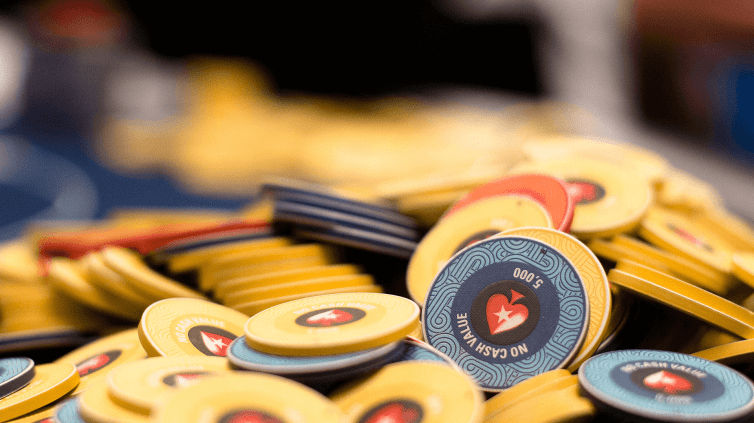Don’t Make the Worse Hand Fold! (Part 2)
Turn and river play.
Last time I wrote about preflop and postflop situations where the opponent folded because of betsizing too large, which lead to you losing value. In the second part of this article I’ll tell you which mistakes you should avoid on the turn and river.
Mistake #3: Betsizing too large after the turn
You are at the turn, and you assume that you have the strongest hand. What should you do? Obviously you should do the same as what you’ve done until now: betting for value. My experiences show that many players are continuing both too aggressively and passively. The passive play – checking the turn – is based on the rationale that the opponent called, that they therefore must have something, and so it’s better to be cautious. It’s always a mistake if you check the turn impulsively without thinking, but I’ll handle this topic in a separate article later.
Having our opponent fold to an overly-large bet is a mistake just as common and just as severe. Many players think ‘Ok, they called the flop, but the pot is big enough so I’ll bet big. I don’t want them to call again’.
Why? Why should they fold? When you force your opponent to fold their straight draw on the turn, you throw away chips (which is basically money). Let’s assume that you only have a top pair with a decent kicker on the turn. If we count 2% for 1 out, then the straight draw has 16% and the flushdraw has 18%. The 2nd and 3rd pairs will have 10% to outdraw you. If they have top pair with a worse kicker, they’ll have around 6% to win the hand. If you bet between 50-75% of the pot, you are printing money in the long term. It’s very important to understand that it’s good for you when your opponent calls.
Poker is about winning your opponents’ chips. Some of the best opportunities for this are on the turn, where your opponents are regularly willing to make bad decisions with their drawing hands.

Mistake #4: Betsizing too large after the river
Compared to previous streets, by the river card, the situation is usually easier, mainly because there are no more cards to come, and your opponent can’t outdraw you. On the river you should only consider whether to bet for value or not, and if yes, by how much. Because of the topic of this article, I’m only focussing on those situations where you have the best hand, and therefore should bet.
A very common mistake comes when playing an obviously very strong hand, like the nuts. Many players think that when they hit, or already have, an unbeatable hand on the river, going all-in is the best option. They don’t care about what their opponent might have in that specific hand, they just say ‘I know that my opponent will fold most of the time, but if I get called sometimes I win a lot of chips’. These players will get a fold too often. In the long term they would earn much more chips/money if they always bet 50% of the pot. Don’t bet too large on the river just because you think that your opponent might sometimes call! Always consider how strong the hand you are playing against is, and always betsize accordingly.
Another very common mistake is when someone is representing their own hand strength with their betsize. They bet large with very strong hands, and bet small with weak hands. I’ll ask again, why? Why does it matter how much better your hand is as long as it’s better than theirs? On the river optimal betsizing doesn’t depend on your hand strength but on your opponents’. It’s usually a general rule of thumb that the more possible combinations the opponent beats, the bigger the bet they are willing to call. There are always exceptions of course. Everyone has met the stubborn kind of player, who wants to get to showdown whenever they have anything. If you note that someone plays this way, feel free to bet bigger against them.
Take a look at this question from the other side. We see many times that professional poker players bet 20-30% of the pot on the river. Why do they bet that small? This happens mostly when the opponents’ hand is easy to determine: something, but not too strong. These bets are almost always value bets. In these situations the players are offering very attractive pot odds to the opponent, who is forced to make the call.
I tried to draw attention to a couple of common mistakes regarding oversized bets in these two articles. However, poker is an extremely complex game and nothing said is always true. We can always give general tips, but we can always stray from the path when the situation calls for it.